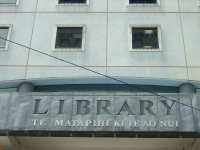About local government

Every day all of us are affected in some way by decisions our city, district or regional council has made.
While Parliament is elected to deal with issues relevant to New Zealand and its people as a nation, local government enables democratic decision-making by and for local communities.
Local government makes decisions about local issues and services, having regard to local needs and priorities.
This recognises that not all communities are the same, nor do they have the same issues.
There are 78 local authorities representing all areas of New Zealand.
New Zealand has –
- 11 Regional Councils;
- 12 City Councils (which are largely urban);
- 54 District Councils; and
- 1 Auckland Council, (which amalgamated 8 former councils on 1 November 2010).
Auckland Council, as well as the city and district councils, are collectively referred to as territorial authorities (TA) - there are 67 in total.
Six of the territorial authorities, (including Auckland, 1 City and 4 District Councils), also have the powers of a regional council - these are sometimes referred to as unitary authorities.
New Zealand has 109 regional councillors, 11 regional chairs, 707 territorial authority councillors, 147 Auckland local board members and 67 mayors. Local government also employs over 30,000 staff.
Learn about the history of local government in New Zealand by visiting The Encyclopedia of New Zealand.
Local government affects you daily
Many of your everyday activities are dependent on services provided by your local city, district or regional council.
These range from water flowing freely from your taps, applying for a building permit, finding a car park so you can borrow books from the library, taking your nieces and nephews to the park, putting out the rubbish for collection, to walking your dog at night along well-lit streets.
Other important local government activities include -
- Writing and managing plans for your area's development, including management of the natural and urban environment.
- Making bylaws and enforcing them, (e.g. dog control, liquor licensing, noise control).
- Participating in community partnerships and initiatives such as reducing crime, increasing jobs or access to housing.
- Civil defence planning and emergency preparedness.
Local authorities' economic contribution to New Zealand
Together our local authorities (both the regional councils and the territorial authorities) make up 3.4% ($9.7 billion) of the total expenditure on the economy (GDP year ending March 2018). In addition, councils accounted for the following as at 30 June 2018:
| Net worth (also known as "total public equity") | $123.6 billion |
|---|---|
| Operating Income | $9.9 billion |
| Operating Expenditure | $10.3 billion |
| Capital Expenditure (also known as "additions to fixed assets") | $4.9 billion |
| Value of Fixed Assets | $123.4 billion |
| Employees (estimate excludes some CCOs) | 26,640 Full-Time Equivalent (FTE) staff |